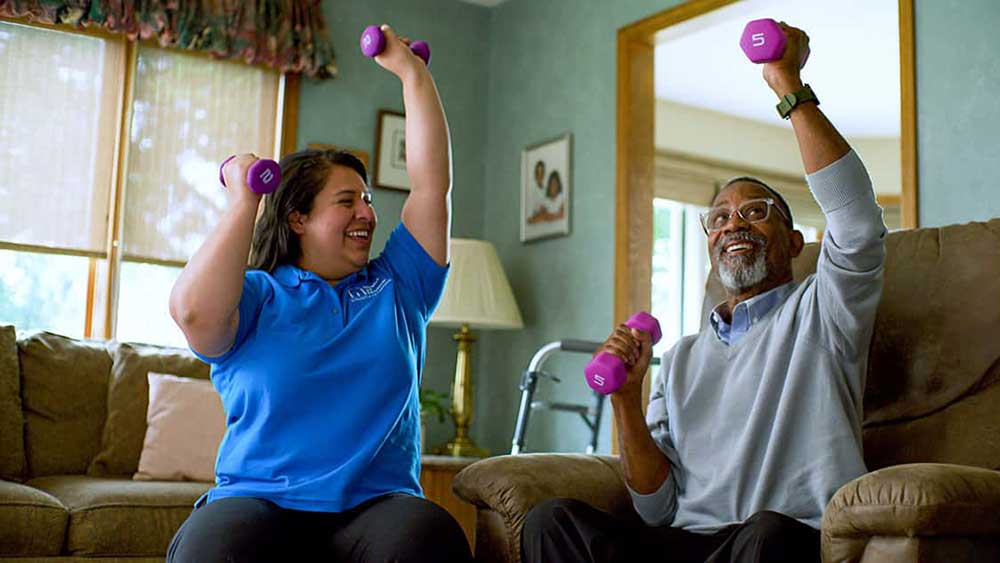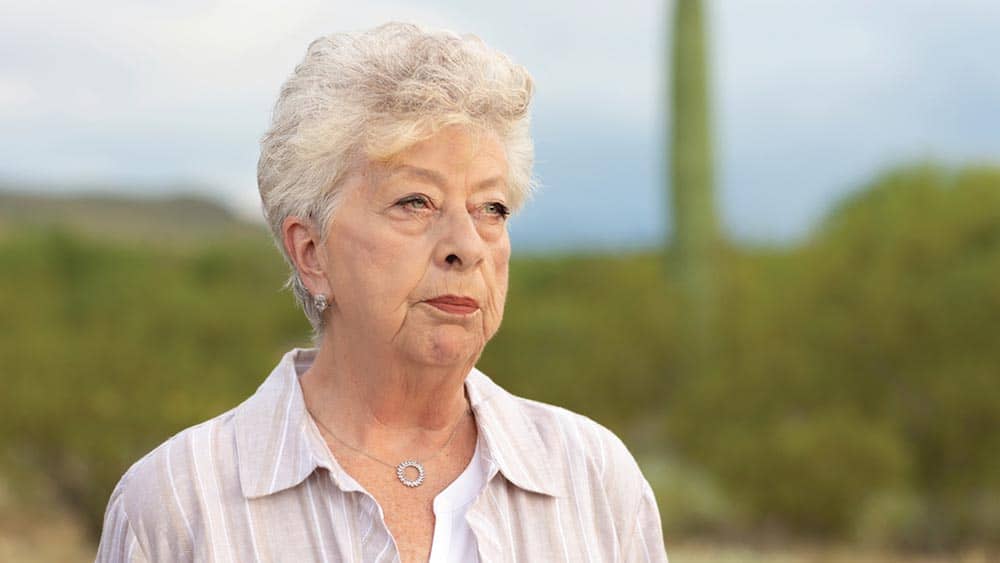

Get Up and Get Out … Into Nature
Almost a year into the COVID-19 pandemic, many people are spending more time in nature than they previously did. They might go for a walk around the lake rather than to a concert, or take a backpacking trip in place of their annual visit to a big city. As weather and health guidance permit, many are holding outdoor gatherings.
Good for them! Nature energizes us and lifts our spirits. “Nature is fuel for the soul,” said University of Rochester psychology professor Richard Ryan. “Often when we feel depleted, we reach for a cup of coffee, but research suggests a better way to get energized is to connect with nature.”
But a University of Michigan poll shows that while many older adults have found alternative ways to be active and to connect with other people, most are doing it indoors. The researchers say that “the use of video chat and social media, while helpful for some, may not buffer feelings of loneliness for many older adults.”
These seniors may be experiencing a nature deficiency—and a “green prescription” could help! University of Tokyo expert Masashi Soga, Ph.D., told the journal Ecological Applications that spending time in nature could lessen some of the negative mental health effects of social distancing during the pandemic—even if it’s just in our own backyard.
Many other experts agree that people who live near green spaces, even just street plantings in cities, have a health advantage. University of Pennsylvania experts showed that when communities cleaned up vacant lots and planted them with greenery, nearby residents experienced decreased depression. A Harvard University study found that people whose homes are surrounded by vegetation live 12% longer—no matter their socioeconomic status or race.
“We found that spending time in, or living close to, natural green spaces is associated with diverse and significant health benefits,” said Caoimhe Twohig-Bennett from the University of East Anglia in the U.K. “It reduces the risk of Type 2 diabetes, cardiovascular disease, premature death and preterm birth, and increases sleep duration.” She speculated that proximity to plants and trees exposes us to beneficial bacteria that could be good for our immune system, and noted, “People living closer to nature also had reduced diastolic blood pressure, heart rate and stress. In fact, one of the really interesting things we found is that exposure to green space significantly reduces people’s levels of salivary cortisol—a physiological marker of stress.”
Seniors who are not getting out much these days may not only be experiencing serious cabin fever, but also may be getting quite a bit less exercise without the motivation of a changing outdoor scene. Their level of physical activity may be steadily declining without them noticing.
When we never go out, we also miss out on sun exposure, and that’s not good for our emotional health. And even a small amount of safe exposure to sunlight helps our bodies manufacture vitamin D, which is so important for bone health and a strong immune system. Prof. Carolyn Greig of the University of Surrey in the U.K. said, “Most of our vitamin D comes from exposure to sunlight; however, for many people, particularly those who are self-isolating with limited access to sunlight during the current pandemic, getting enough vitamin D may be a real challenge.” Greig cautions that we should talk to our doctor before taking vitamin D supplements.
Spending time in nature also helps take our minds off our troubles. Researchers from several University of California campuses instructed a group of seniors to take “awe walks” in nature, and found that study participants reported more positive emotions and lowered feelings of distress.
“Awe is a positive emotion triggered by awareness of something vastly larger than the self and not immediately understandable,” said study author Dacher Keltner, Ph.D., of the University of California, Berkeley. “Experiencing awe can contribute to a host of benefits including an expanded sense of time and enhanced feelings of generosity, well-being and humility.”
Study co-author associate professor Virginia Sturm, Ph.D., of the University of California San Francisco added, “Negative emotions, particularly loneliness, have well-documented negative effects on the health of older adults, particularly those over age 75.” Sturm said that “a very simple intervention—essentially a reminder to occasionally shift our energy and attention outward instead of inward—can lead to significant improvements in emotional well-being.”
We can experience a sense of awe through music, art or a public gathering—but these outlets may not be safe these days. For many people, spending time in nature is the ultimate source of wonder. Participants in the California study shared their observations, one noting “the beautiful fall colors and the absence of them amidst the evergreen forest … how the leaves were no longer crunchy underfoot because of the rain and how the walk was more spongy now … the wonder that a small child feels as they explore their expanding world.”
Getting outdoors safely
For many seniors, spending time outside right now is very challenging. Those who live in senior living communities may still be in strict quarantine as facilities work to avoid and contain COVID-19 cases. Even seniors who live at home may remain cooped up, unsure of whether it is safe to go out and how they can protect themselves.
Encourage senior loved ones who live at home to get out as they can. Even though it’s only February, start planning a spring garden! While practicing safe physical distancing, accompany your loved one to a park, forest preserve or beach. If your family uses professional in-home care, the caregiver can accompany your loved one on outdoor walks, providing motivation and a sense of confidence that they’ll be safe.
Even after the pandemic is over, those of us who take time to appreciate nature may find that we’ve developed a lifelong passion!
Health and Safety Resources for Seniors
Featured Article








